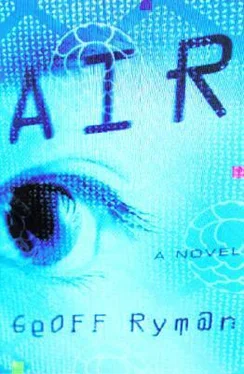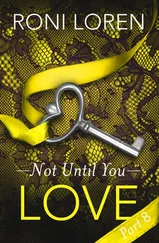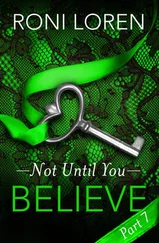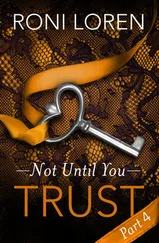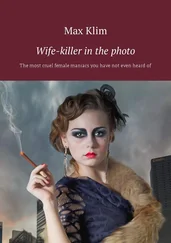From synaesthesia, a means of stimulating images, sounds, and even tastes was developed. A means of translating this system into first protocols, and then encoding for those protocols, was some years in development.
End of lesson.
Lunch came. Again it was the silent guard who brought it. And Mae knew then, that despite all his smiles, Hikmet Tunch was frightened of her.
Lunch moved. It was delicious new organisms that could talk.
Bits of lunch piped up, in merry little voices: 'We are designed to provide full vitamin and other protein content undiminished by death or cooking. Think of us as the perfect form of happy nutrition.'
Then they sang a happy little song waiting to be eaten. They looked like limbless prawns without shells, with little carbon crystals perched on top like jewels.
'Take that foulness away. Tell Mr Tunch that I will starve myself rather than eat anything other than normal food.'
The silent giant nodded once and left the room, with the lunch still pointedly on the table, still singing like little intelligent bells. He came back with a bowl of ordinary soup. He sat and watched Mae eat it, as if making sure she did. He looked at his watch.
It was only after several mouthfuls that Mae realized the soup had an aftertaste. 'Is there something in this?' she asked. The giant left.
Colours began to sharpen. Mae felt her unease with a new razor-sharpness.
The door opened, and Mr Pakan came in with a dog.
The dog's head was shaved, and a neat little metal cap was bolted to its skull. The cap had a speaker in it.
'Mae, hello, Mae,' the dog slobbered in affection. 'I have a job. People trust me with a job. They have made me much smarter, and taught me how to talk. There may be a future for dogs, if we can tell jokes and love our masters.'
It came toward Mae, backing her into a corner.
'Please let me lick your hand. I only want to lick your hand.'
Mae's head was beginning to buzz, and there was a kind of gathering tension, as if a bubble had swollen and was about to burst.
'You bastards,' she managed to say. They were doing this deliberately, to bring Mrs Tung back.
'Don't you like me? Please like me,' the dog was pleading, wanting to whimper, but the whimper was given a voice. 'Who will feed me if I am not loved?'
Where are we, dear?
Mae heard oxygen rustle in her ear, and she understood so clearly everything that Mrs Tung was feeling. The floor was shifting underfoot, the room was melting.
Let's go home. Do you know the way?
Mae settled onto the floor. Mr Pakan nipped forward and began to wrap Velcro around Mae's arm.
The last thing Mae saw before losing her body was the dog, eating the singing food. 'Gosh, this is good,' said the dog.
Mae was buzzed all the way to the back of her body.
Mrs Tung stood up and sat in a chair, and asked Mr Pakan, 'Would you be good enough to find a blanket for me, dear?'
Who is that man? Mae tried to ask her. You don't know who he is, do you?
The colours chuckled and Mae fell silent.
But oh, Mrs Tung thought, it's so good to have joints free from pain! And to see so clearly! My books! I shall be able to read my books again. Mrs Tung hooted with pleasure.
Now, she thought, if only Mae were here.
Mae awoke feeling limp, as if every bone were broken.
She was in bed in a room that was like a hospital, but it was a room for one. sick bay rules, said a notice on a bulletin board. She was still being held.
A kind of ringing went off.
A young male nurse put his head through the door. His eyes skittered over machines.
'How do you feel?' he asked in a high, quiet voice. He might have been Hikmet Tunch's brother.
How do you think I feel? Mae thought. 'Not too good,' she replied. 'Do I still have my baby?'
He paused for a beat. 'I think so.' He wasn't sure. 'Someone will see you soon.' He turned and left.
Somewhere music was playing. The buzzing strings, the slight wheedling flatness of the flute, marked it as Karzistani. The melody was in a European scale, sad and measured. With its wavering Muerain singing and electronic sounds, the music was perched exactly between Asia and Europe, the old and the new. Like us, thought Mae. How like us it is. It was yet another song of lost love.
I am missing the harvest, thought Mae. The valley floor will be cleared and Mr Wing will hire the green machines and the rice will be separated from the stalks. The rice will be piled high in mounds. Someone's car will be running with the radio on to make music. This song perhaps. Mae saw them in her mind, the yellow-blue-green of the old ladies' aprons over their blue trousers, all faded with washing, age, and dust.
Fatimah was back in the room.
'You did this to me,' Mae said. She knew. They had deliberately provoked Old Mrs Tung to return.
Fatimah blinked. 'I'm sorry.'
'Do I still have my baby? Have you taken my baby?
Fatimah was getting weary of this. 'No, we haven't.' she said quietly.
'Did you learn what you had to?'
Fatimah sat on the bed. 'We now know what happens when the other imprinted personality takes over. It requires emotional synergy, when both personalities feel the same thing. For example, when you both feel fear…'
Tell me something new, thought Mae.
Something in the way Mae shifted on the bed made Fatimah stop.
'We have given you a drug that will help you keep the… other personality under control.' Fatimah was holding a foil in her hand. Her eyes said, See? We are trying to help. She was amused by something at the same time. 'These pills are so new, the paste is still drying.'
'What does the drug do?' Mae asked.
'It reduces emotional synergy.' Fatimah shrugged. The only words she had were big ones. Either she didn't want to or couldn't say clearly what it did.
But Mae knew. She could feel it. 'It scatters me like leaves,' she said.
Fatimah sighed and breathed out once, hard: That's it. 'It might have side effects like that.'
I would not be part of the harvest anyway. The village would shut me out. I have no rice to harvest; it is all Joe's rice. So I would hang around outside the threshing field. Like a ghost.
If I try to tell people what I have seen here, the drug will make me vague. Or Mrs Tung and I will rise up together, in front of them, mad.
Then I will give birth out of my mouth. And be a monster.
'You rest,' said Fatimah, and patted her arm.
Part of Mae wanted to weep and say: I want to go home. But she was blocked from that. Strong emotion or clear thought melted away.
At some point Fatimah had gone, and Mae was alone.
Where is my good dress? she wondered. I took my good dress to the city and my Talent jacket. She looked around the room and saw nothing that was hers.
The good dress and the Talent jacket faded in importance. Mae swung her feet out from the bed. She stood in a surgical shift.
There was nothing in Mae's mind as clear as a decision to escape. She simply left. She did not consciously say: Leave the drugs; better the war, the pain, and the clarity. The foil of pills remained on the table by the bed.
Mae opened the door and walked out into the corridor, and the dog was there.
'Go,' growled the dog, ears alert, teeth bared, rising up. 'Back.'
Mae assumed that for all practical purposes she was talking to Mr Tunch. 'We've completed our bargain,' she said, in a faded, weepy voice. It wasn't fair, she'd done what she said. 'Fair trade.'
'You are supposed to stay there.' His voice was even, mechanical, with strange jumps of tone and texture.
'Why?' Mae asked.
The dog cocked his head to one side. 'Because you are sick.'
'Now I'm well.'
Читать дальше
